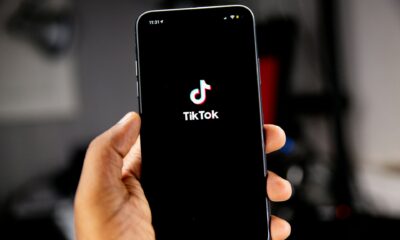411
“It’s Just a Phone” Until It’s Not: South Africa Joins Global Debate on Social Media Bans for Under 16s

The screen time debate has taken a sharp global turn — and South Africa is now part of the conversation. As countries like Australia and France move towards banning social media access for under-16s, concerns about the mental health risks of platforms like Instagram, TikTok, and Facebook are gaining serious traction at home.
In KwaZulu-Natal, Health MEC Nomagugu Simelane is urging parents to rethink how much freedom they’re giving their kids online. And her warning isn’t coming from a place of theory. It’s rooted in alarming real-life incidents: from cyberbullying to suicide cases linked to digital pressure, the dangers of unsupervised access are no longer hypothetical.
A growing problem parents can’t ignore
Speaking on the KZN Health Chat multimedia programme, Simelane didn’t mince her words.
“You find cases where a child takes their own life, only to discover it stemmed from the pressure they felt based on what they see on social media,” she said.
Simelane shared the chilling example of a student whose face was photoshopped onto a sex worker’s profile and shared online — a cruel act of cyberbullying with devastating emotional consequences. And she’s right: we often underestimate what kids are exposed to through their phones, thinking it’s “just a screen.”
But behind that screen is a world that can distort self-image, feed anxiety, and expose children to adult content far beyond their years.
South Africa’s digital reality: Kids are already online
According to recent data, South Africa has 26.7 million active adult social media users, and that number is growing fast. But what’s more concerning is that 95% of learners from grades 4 to 11 (roughly ages 10 to 17) have regular internet access. Even more telling? 83% of 12-year-olds already have a social media account — despite most platforms having a minimum age of 13.
As a local mom of 11-year-old twin girls, I can tell you firsthand: it’s nearly impossible to stay one step ahead. Google is their library. TikTok is their entertainment. Instagram is where they look for validation. And the content? It’s algorithm-driven, addictive, and not always age-appropriate.
Australia leads the charge, but challenges remain
Australia recently became the first country to announce a nationwide ban on social media access for under-16s, backed by digital age verification technology. If platforms fail to comply, they’ll be fined. But officials admit it’s still easy for kids to get around the system — fake IDs, older siblings, and secret accounts make total enforcement tricky.
Globally, the movement is gaining steam:
-
France requires parental consent for under-15s.
-
Italy has set the minimum age at 14.
-
Norway is eyeing an increase to 15.
-
Canada and some US states, like Florida, are exploring similar bans or already restricting phone use in schools.
-
Even the UK is reviewing the impact of smartphones on childhood mental health.
Across the EU, discussions are heating up about defining a “digital age of adulthood” and rolling out stricter age verification protocols.
Is a ban realistic — or just another loophole?
While banning social media for under-16s sounds like a logical step, South Africans are asking whether it’s realistic in practice. Enforcement is only one piece of the puzzle. Digital parenting, open communication, school education, and mental health awareness need to walk alongside any legislation.
If not, children will just keep finding workarounds — opening fake accounts, using friends’ phones, or turning to darker corners of the internet where no filters exist.
The way forward: Tech boundaries with heart
Back in KZN, Simelane’s call isn’t just for government policy — it’s a plea for parents to be present. To talk, listen, set boundaries, and remember that behind every screen is a child navigating a world of pressures we never had to face at that age.
Maybe the answer isn’t just about tech bans or app restrictions. Maybe it starts with treating a child’s digital world with the same care and concern we’d give their real one.
Because it’s never “just a phone” — not when the stakes are this high.
Source:IOL
Read More: Are Students Losing the Art of Thinking? The ChatGPT Classroom Dilemma
Follow Joburg ETC on Facebook, Twitter , TikTok and Instagram
For more News in Johannesburg, visit joburgetc.com



























